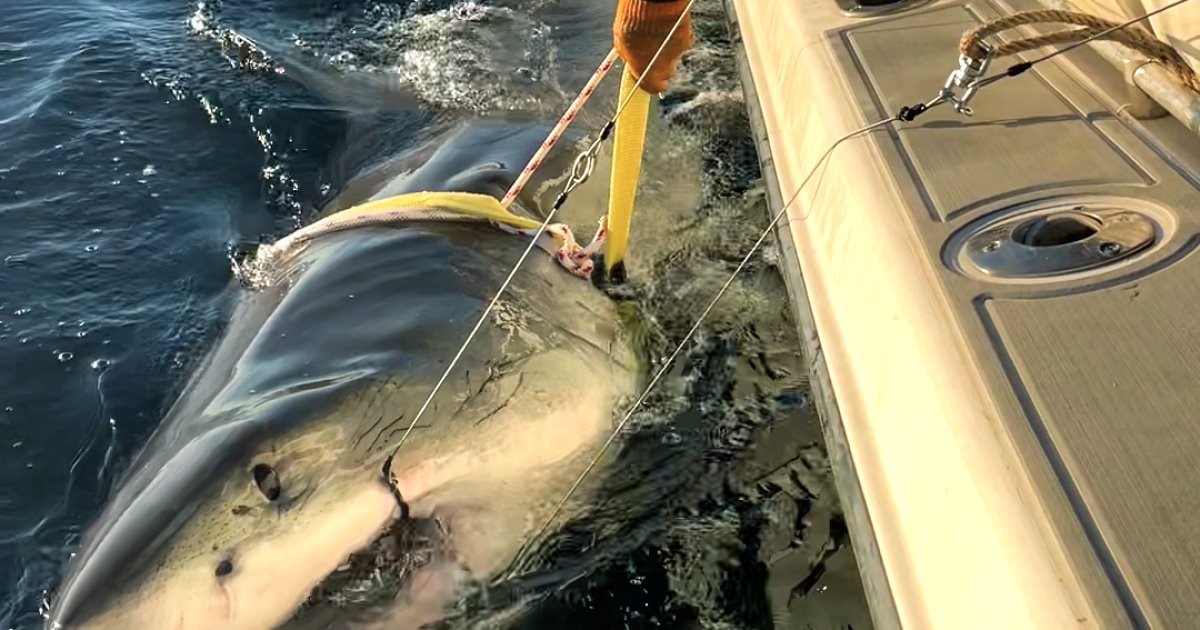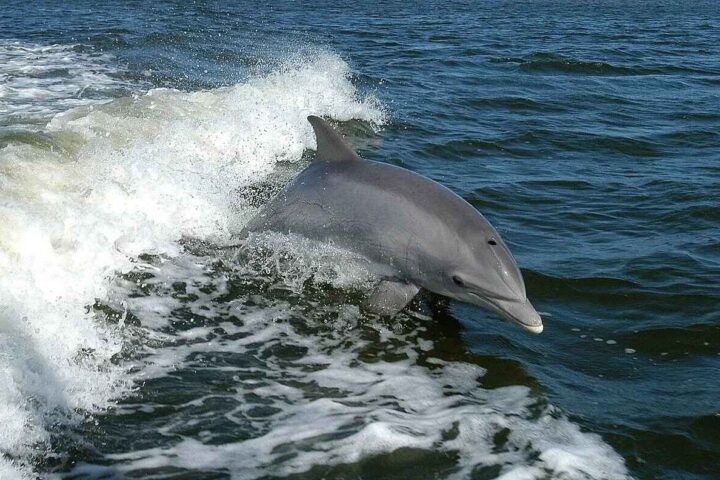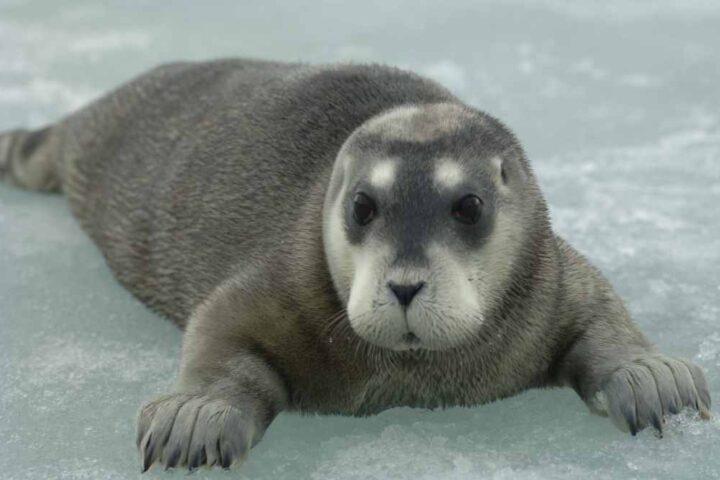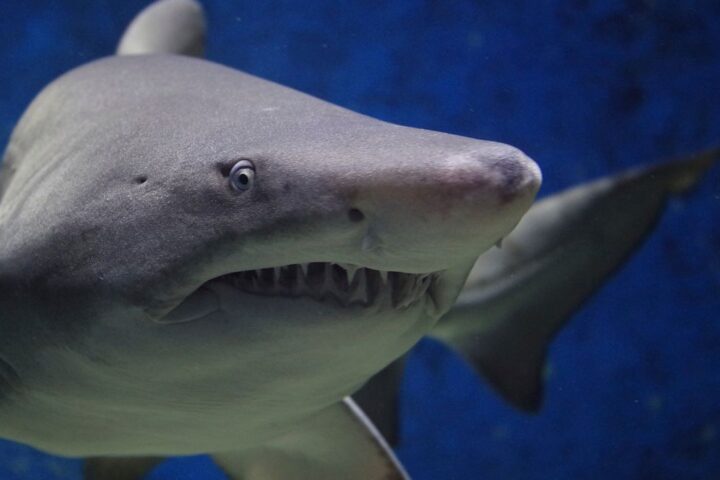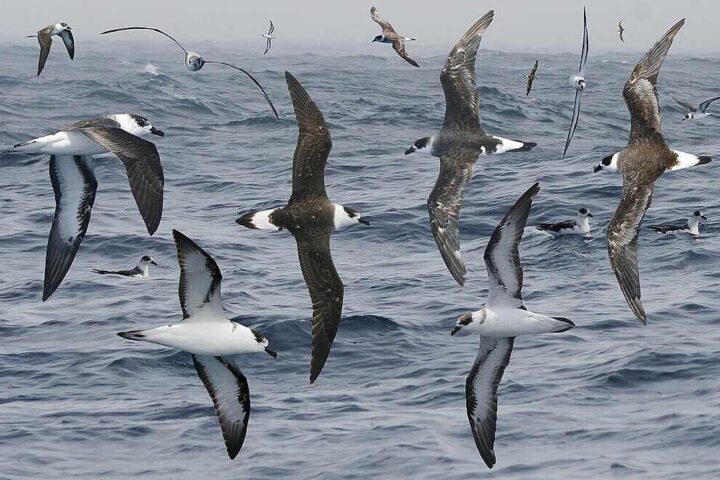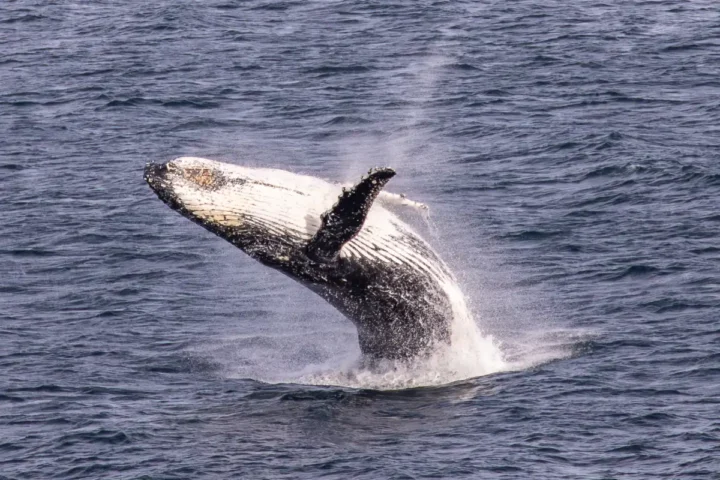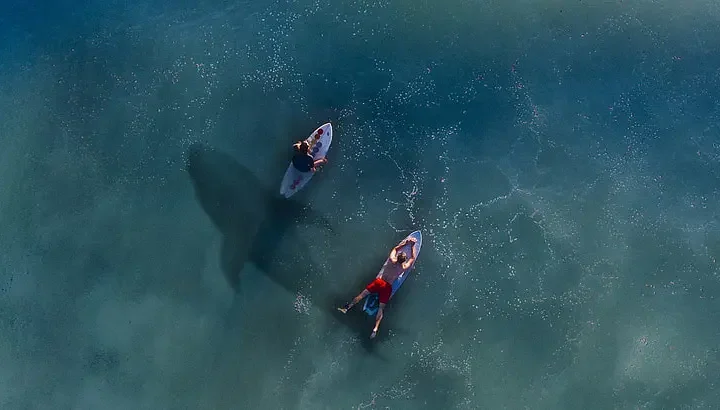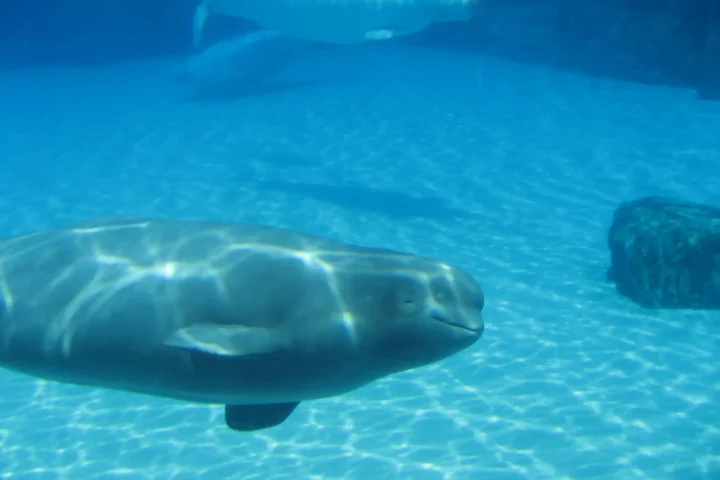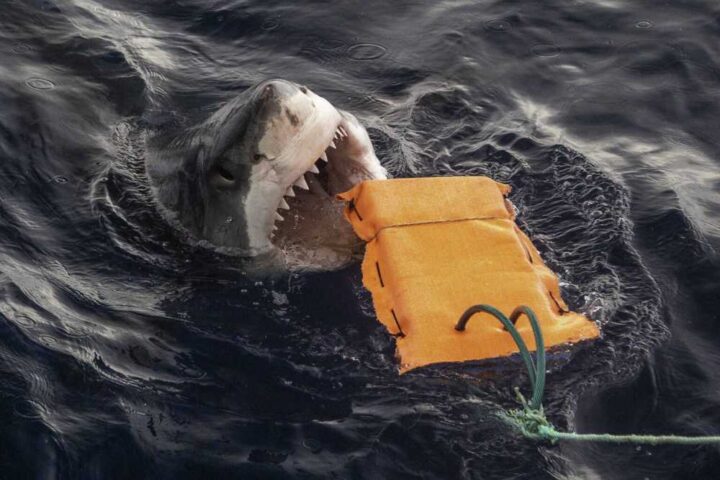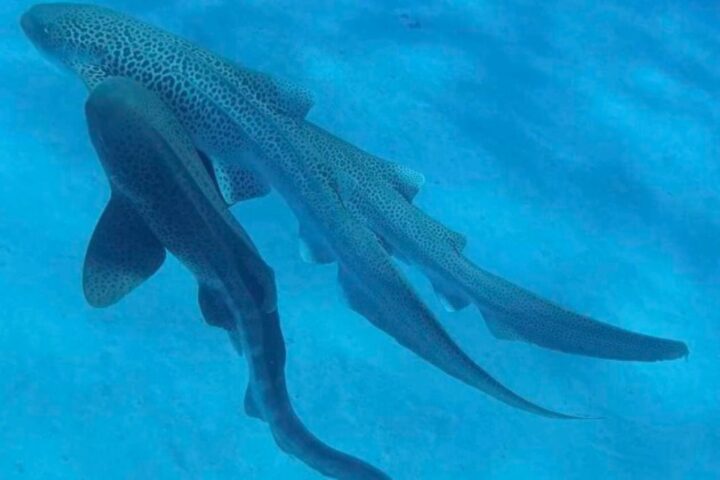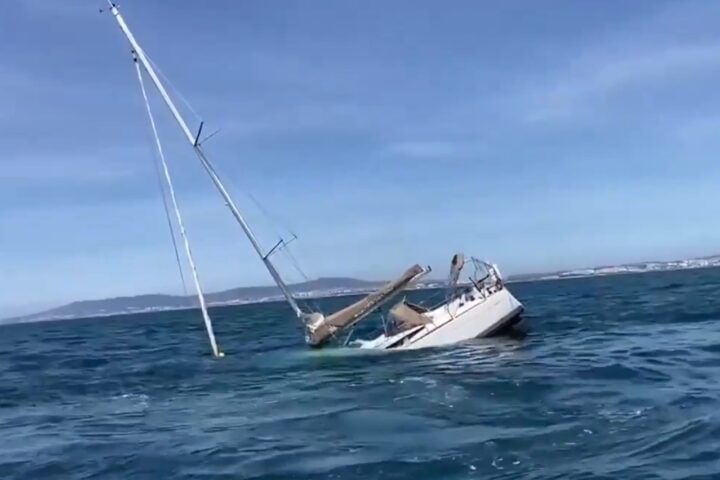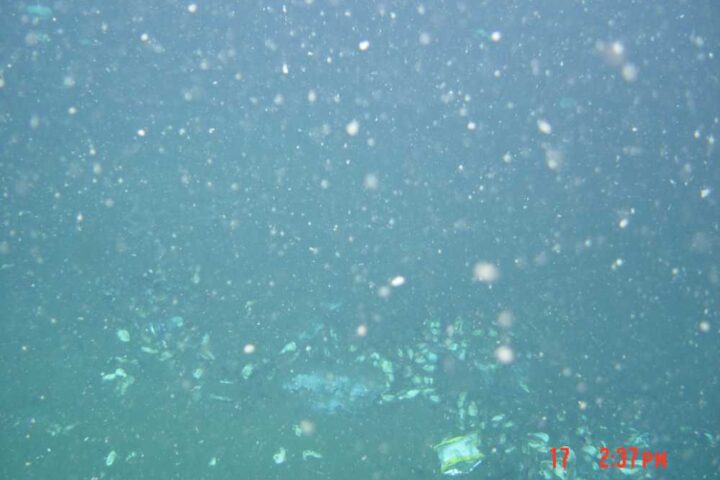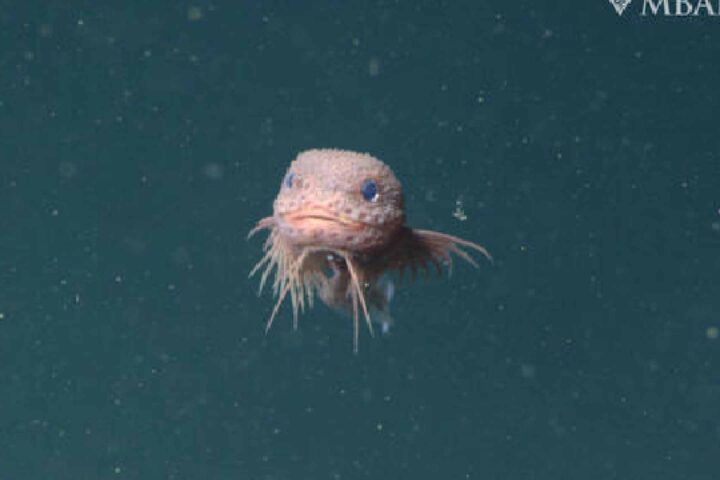A massive great white shark named “Contender” is making waves as it travels up the Atlantic coastline. At nearly 14 feet long and weighing 1,653 pounds, this impressive male shark is the largest ever tagged by OCEARCH in the Atlantic Ocean.
First spotted and tagged in January 2025 off the Florida-Georgia coast, Contender has been steadily moving northward. His tracking device recently pinged just 22 miles off Cape Hatteras, North Carolina on June 11, 2025.
OCEARCH researchers explain that Contender’s journey follows the typical migration pattern for great white sharks. These powerful predators spend winters in warmer, southern waters before heading north for the summer months toward cooler waters near Canada where more prey can be found.
The Outer Banks region serves as a crucial pit stop during this journey. “We often see the sharks spend a period of time off the Outer Banks right before they move north,” said Dr. Harley Newton, OCEARCH’s chief veterinarian and senior scientist. This area provides rich food resources that help the sharks build energy reserves before continuing their migration, which can span more than 1,000 miles.
At approximately 30 years old, Contender is considered a fully mature male shark. His movements are tracked using a Smart Position and Temperature (SPOT) tag attached to his dorsal fin that transmits his location whenever he surfaces.
Similar Posts
“As a mature male, Contender is an important part of the effective breeding population and will hopefully contribute to the rebuilding of the western North Atlantic white shark population,” Dr. Newton noted.
The public can follow Contender’s journey through the free OCEARCH Global Shark Tracker app or website. Each ping from his tracking device provides valuable scientific data about the lives of white sharks in the Northwest Atlantic.
“Every ping helps us get one step closer to understanding and protecting these incredible animals,” OCEARCH stated in a social media post.

Great white sharks play a vital role in marine ecosystems by regulating prey populations. The data collected from tracking Contender contributes to conservation efforts aimed at protecting these apex predators, which face threats from overfishing, habitat loss, and climate change.
Contender’s tag will continue providing his location for approximately five years, allowing researchers and the public to follow his oceanic adventures well into the future.
